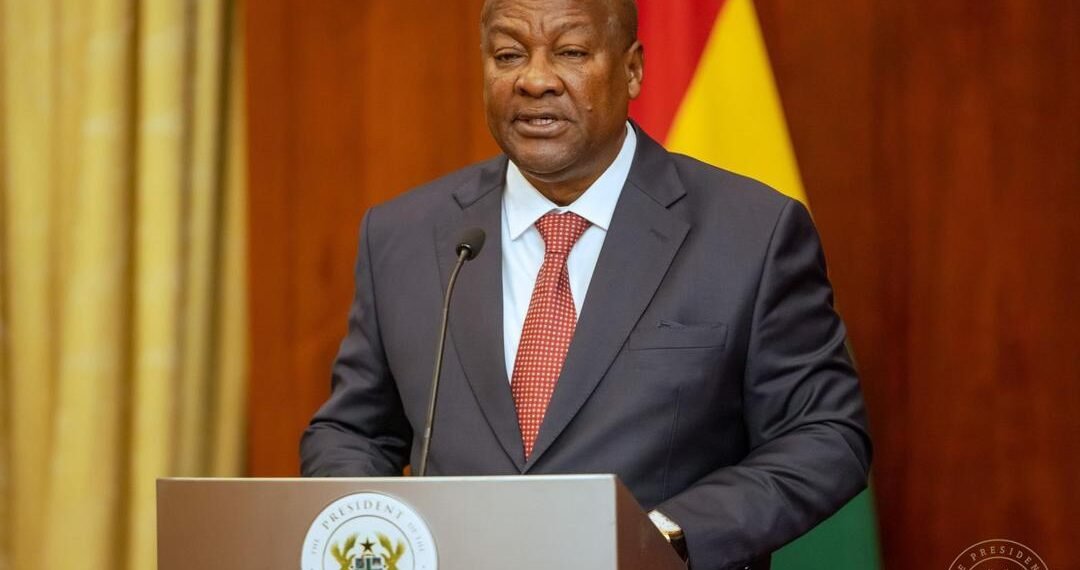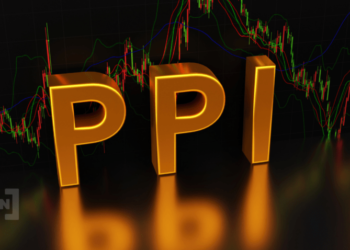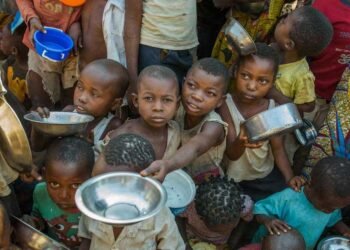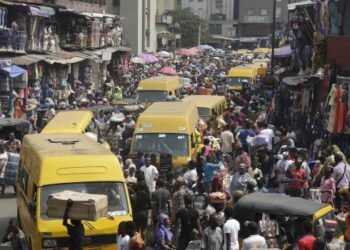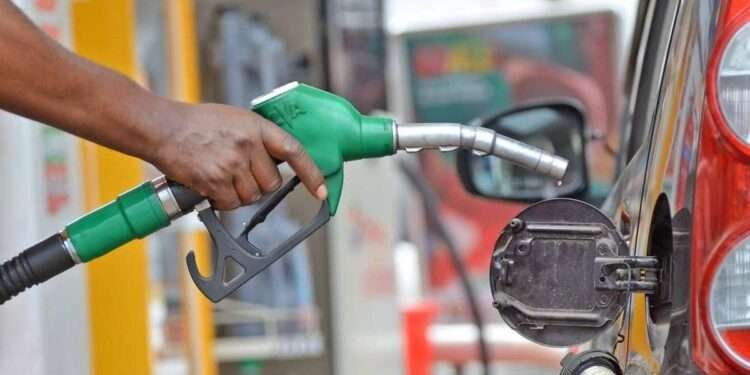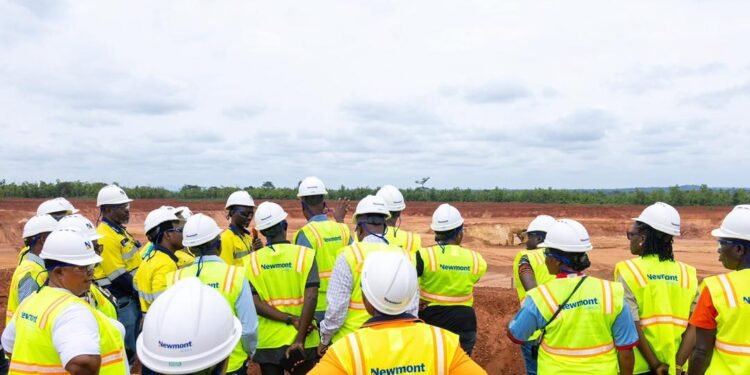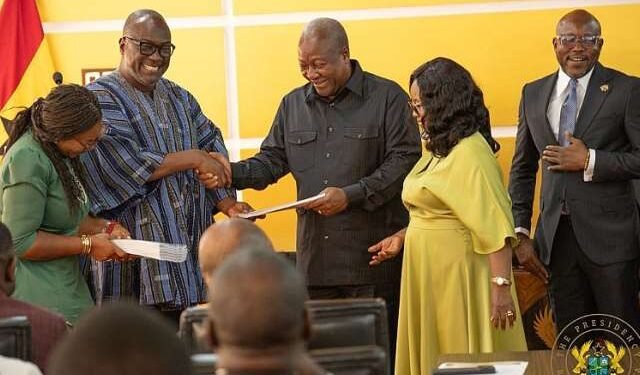President John Dramani Mahama has expressed excitement over Ghana’s economy gradually rebounding, underpinned by robust trade ties with the European Union, strong export performance, improved fiscal indicators, and renewed investor confidence.
Delivering the keynote address at the Ghana-European Union Business Forum between Ghanaian policymakers and European private sector players, President Mahama emphasised the value of multilateralism in an increasingly transactional global economic landscape.
“In a world order that is changing from multilateral rules-based systems to unilateral and transactional relationships, we are proud of our partnership with the European Union.”
HE President John Dramani Mahama
According to President Mahama, the Ghana-EU trade relationship remains solid and mutually rewarding. Backed by data from the United Nations Comtrade database on international trade, President Mahama reported that in 2024, the European Union imported approximately $3.25 billion worth of goods from Ghana while exporting $3.65 billion worth of goods into the Ghanaian market.
This near parity in trade volumes, he explained, highlights a relationship rooted not just in cooperation, but in shared prosperity.
Ghana’s broader export figures tell an even more promising story. According to President Mahama, in 2024, the country’s total exports peaked at GHS 294.9 billion, approximately $20.4 billion, marking a significant recovery from previous years of sluggish growth.
Ghana’s Trade Surplus
For him, even more encouraging, Ghana recorded a trade surplus of GHS 44.7 billion for the year, signifying a healthy balance between the country’s exports and imports.
President Mahama noted that three key commodities—gold, mineral fuels and oil, and cocoa—accounted for over 82% of Ghana’s total exports.
According to him, gold alone fetched GHS 163 billion, followed by mineral fuels and oil at GHS 54.2 billion, and cocoa and related products at GHS 28.6 billion.
These traditional export pillars remain critical to Ghana’s economic architecture, but the country is also seeing a surge in non-traditional exports.
Additionally, in the first quarter of 2025, Ghana recorded a 13% increase in non-traditional exports, including processed foods, textiles, and shea butter.
“This performance is not accidental, it is the result of deliberate industrial policy efforts and the sustained implementation of trade facilitation measures, coupled with market access opportunities under our economic partnership frameworks with the European Union.”
https://thevaultznews.com/news/general-news/ndpc-chairman-charts-bold/
Signs of Economic Stability
The Ghanaian President also pointed to signs of macroeconomic stability returning after a turbulent period.
He cited the Ghanaian cedi’s recent turnaround as a key indicator, adding that after depreciating by 19.2% in 2024, the local currency appreciated by 3.9% against the US dollar by April 2025, reflecting improved market sentiment, stronger forex inflows, and more favourable trade balances.
This positive currency performance, President Mahama indicated, was underpinned by a number of macroeconomic fundamentals. Notably, Ghana’s gross international reserves increased significantly, from $8.98 billion in December 2024 to $10.6 billion by April 2025.
With nearly five months of import cover now secured, President Mahama noted that the country is in a much stronger position to weather external shocks.
President Mahama attributed this reserve accumulation to enhanced export earnings, particularly from gold and the expanding non-traditional export base, as well as timely financial disbursements from multilateral partners.
Ghana’s fiscal picture is also showing measurable improvement. According to President Mahama, the fiscal deficit on a commitment basis was reduced from 7.5% of GDP in 2024 to 6.4% in the first half of 2025. His administration, he affirmed, remains on track to meet its end-of-year 2025 deficit target of 3.1%.
“This is being achieved through expenditure rationalisation, improved domestic revenue mobilisation, and strong anti-corruption measures.”
HE President Jhn Dramani Mahama
These steps toward fiscal consolidation are crucial to building long-term economic resilience, restoring confidence in Ghana’s public finances, and avoiding further accumulation of debt.
For a country that recently went through one of the most severe economic downturns in its Fourth Republic history, marked by rising inflation, debt distress, and currency instability, these numbers suggest a slow but steady rebound.
President Mahama was quick to temper optimism with realism, however, cautioning that the road ahead still demands discipline, focus, and inclusive policymaking.
“These figures, though early in the year, are clear signs of a disciplined and inclusive economic recovery,” he stressed. President Mahama’s remarks also served as a subtle endorsement of multilateral cooperation as a necessary pillar for sustainable development.
He drew a contrast between the Ghana-EU partnership and the growing trend of unilateralism and transactional diplomacy elsewhere in the global arena.
He warned that as powerful economies pursue self-interested trade practices, smaller economies like Ghana must deepen alliances that ensure fairness, reciprocity, and long-term strategic alignment.
The Ghana-EU Business Forum, an annual platform for economic dialogue and investment promotion, comes at a time when Ghana is seeking to boost foreign direct investment, improve the business environment, and deepen bilateral trade relationships.
He encouraged European partners to consider the range of emerging opportunities in Ghana’s non-traditional export sectors, particularly in agro-processing, textiles, renewable energy, and light manufacturing.
As his administraation continues to push forward its industrial and economic transformation agenda, President Mahama emphasized that sustained support from Ghana’s European partners would be vital to consolidating gains and driving inclusive growth.
READ ALSO: NDPC Chairman Charts Bold Plans to Drive National Development

